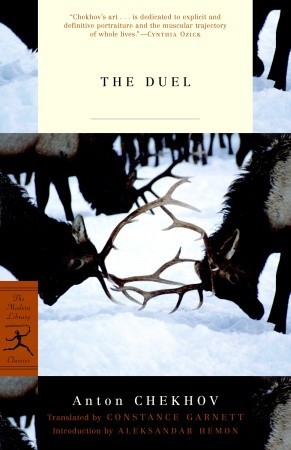Rating: ★★★★★
There is a well-known belief that, brimming with the romanticism of bygone days to which reason acquiesces in silence, attempts to explain the elusive nature of human relations. According to this myth, the gods get involved in our existence by using a red cord. In Japanese culture, such cord is tied around the little finger; in China, around the ankle. Be it as it may, that string binds one person to the other; people who were always destined to meet, regardless the place, time or circumstances. The character of this connection varies, since it is not restricted to lovers: the two people whose paths are meant to converge at some point, will make history in some way or another, in any given situation. It is said that the red string might get tangled or stretched but it can never break.
Amid all the plausible and unrealistic explanations that might be conceived in order to unravel the true nature of all the encounters we experienced and the ones still awaiting for us, this myth is one of the most poetic ways to try to elucidate their puzzling essence while conveying a lack of randomness in human relations (this certainly goes beyond any rationalization that I could manage to elaborate and that would ultimately be rather pointless). For you could find the person to whom you were always meant to share your life with when you least expect it, no matter your marital status, undoubtedly. And a story that could epitomize this legend took place in 19th-century Russia.

Anna Karenina is not merely a story about an ill-fated relationship that begins with one of the most famous lines in classic literature. Admittedly it was prejudice what prevented me from picking up this book for years. I thought it was going to be another mawkish love story that, alongside its many comings and goings, dealt with—and probably romanticized—the theme of adultery. As much as I spent my entire life questioning the dogmas that my surroundings may have tried to impose upon my own fragile set of principles in youth (that slowly became more grounded through the years), a certain vestige may have survived, but I'm not trying to compete with Tolstoy over who has the most moralizing tone, for I judge no one but myself. To sum up, in literature, the idea of infidelity bores me, so if I have to put up with over nine hundred pages of passion, deception, lustful gazes, thrilling rendezvous and any other similar situation... I'd better stick to short stories.

So imagine my surprise when I found this substantially complex universe populated by people coming from different backgrounds, following different principles, imbued with many noble qualities and ordinary flaws; all captives of something, be it a required sense of dignity, an observance of decorum, stifling social conventions, the game of honesty and feigned emotions or a religion that ruled over most aspects of their lives. A universe defined by the sacrifice of one's wishes, the rejection of one's true feelings in order to do what is proper. A self-denial attitude to demonstrate compliance with the social rules of the world. Actions intended to safeguard a reputation that might get tarnished by truth or falsehood.
I must confess that my lips sarcastically twitched every time I read Tolstoy's effusive meditations on the magnanimous nature of religion and its elevated consequences upon people's behaviour. Oh, 'I want to turn the other cheek, I want to give my shirt when my caftan is taken, and I only pray to God that He not take from me the happiness of forgiveness!' and excerpts as such. At times, I was unable to shake off the impression of a preachy tone that perhaps it was not so, but that my skeptical disposition perceived it anyway. Thankfully, he didn't gush about that too often.
Thus, I gave in. I surrendered to the magnificence of his words, unconditionally.
Every character has been meticulously developed. They were given strong opinions and even the ones I found slightly weak at first, astonished me later when I read their poignant musings, especially when it came to women and their role in both family and society. The idea of (preferably) attractive women whose main job is to give birth, bear with husbands of libertine inclinations and accept their inability to form any opinion worth hearing because nature (un)fortunately has not endowed them with men's brilliance, has clearly survived the 19th century and still resides in some minds that surely scream progress and common sense.
A third-person omniscient narrator takes the lead and introduces us to the world of Anna Arkadyevna Karenina, Karenin's wife, who falls in love with Count Alexei Vronsky, a single, wealthy man. My feelings toward Vronsky gradually changed; I found him rather obnoxious at first—though not as much as Anna’s brother, Stepan Oblonsky, a charming and utterly selfish womanizer married to Darya (‘Dolly’).

This narrator (who acquires a suitable tone for each character and even gives voice to the thoughts of their pets) also follows the story of Konstantin Levin and Ekaterina “Kitty” Shcherbatskaya. Needless to say, Levin has become a favorite of mine. Through his actions and way of thinking, some fascinating factors came into play. His riveting conversations—that he maintained while trying to overcome a heart-rending awkwardness, especially when he found himself cornered due to his inability to disentangle his innovative thoughts when discussing philosophical and political issues—and internal monologues are for me the most memorable parts of the entire novel.
Anna's story is a faithful account of the pressure caused by social norms and the influence of the Russian Church which combined with other elements eventually brought about a relentless state of blinding jealousy, another theme deeply explored by Tolstoy, along with hypocrisy and the need to resort to appearances to be at least theoretically happy. On the contrary, Levin embodies the simplicity of the countryside life, far away from any display of unnecessary opulence; also the bewilderment regarding bureaucracy and the efforts to grasp the concept behind politics, the difficulties present in his relationship with peasants and, in a global scale, the whole agrarian system in contrast to the perception of progress seen in the city. In addition, we witness his struggles concerning faith, an aspect that immediately drew me in, as I also feel frustrated every time I ponder the essence of our existence, our identity, the acknowledgement of death—mortality salience or a persistent state of fear and anxiety—and how everything is supposed to fit an intricate system based on faith; swinging back and forth between reality and a need to believe in something.

This absolutely compelling book showed me another side of Tolstoy. He opened the doors to a world I may recognize since it is not my first Russian novel but that I have barely seen through his eyes for I stubbornly shunned his look for so long. His gifted mind, the uniqueness of his style, the now unmistakable sound of his words thanks to this wonderful translation, the beauty of his language and the sincere nature of his thoughts that were conveyed so eloquently, left an indelible impression on me. Through the characters he has skillfully brought to life, Tolstoy not only shared his views on society and politics, but also his unswerving commitment to do everything in his power to attain a meaningful life. That strenuous search we are always returning to; one that cannot be limited to any time or place since it is intrinsic to human condition. That purpose to which existence might aspire. Something to stimulate our slow, measured pace, often against the flow.
Many things lead to that much desired meaning. Many ways that by themselves are insufficient as life, in constant motion as it is, is a complement of them all. Countless roads branching out while we contemplate, with fearful eyes and wavering avidity for they have ramified in so many directions, the one we should choose.
There is one clear path that this novel illustrates with unflinchingly compassionate brushstrokes of reality. It is understandable that, seeing how love might deteriorate over time, how a kiss becomes an endless reproach and a word, a way to punish and inflict pain on others in the midst of an atmosphere of self-destruction, might make you realize of how that possibility, that unremitting sense of an ending has been injecting fear into your being through the years and all of the efforts you have made to keep a reassuring distance from everything; echoing infantile attempts at self-preservation. A child stepping into society for the first time, again; learning how to speak and behave accordingly, again. Anna, her ghosts, they all demanded, energetically; others, while yearning for different scenarios, return to the shadows, quietly. Giving too much; receiving halves, too late. Doors are always on the verge of closing; serenely becoming accustomed to nothingness.
Even so, amid a myriad of red threads that belong to the vastness of a timeless tapestry, love still constitutes one of the paths that may render a fulfilling life possible.
A bedroom adorned with poppy tears is now shrouded in silence. A red string dwelt there once. It connected two people destined to meet; people who lived a thousand lives in the eternity of a second. According to the myth, such string stretched, tangled and stretched again.
Until she seized hold of it, hoping for a season of forgiveness.






















